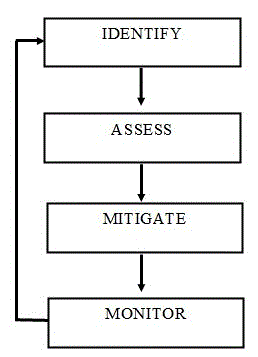According to a survey released in March 2006 by PricewaterhouseCoopers (PwC) and the Eurasia Goup, 73 per cent of multinational firms do not feel that they are effectively managing political risks in the new markets in which they are investing.
The two firms, which formed an alliance designed to integrate political risk management into the overall enterprise risk management process, surveyed 100 firms in the study.
The following is an extract from an official press release:
"We're witnessing the rapid expansion of multinational organizations into unfamiliar yet extremely promising new markets -- yet after their initial review of the political environment, few companies are making the commitment to ongoing, structured monitoring and assessment of the political landscape," said PwC partner Fred Cohen.
"Too often, organizations are relying on local sources to assess their political risk, leading to them to make incomplete business decisions because they may not have all the facts. To be successful, companies must ensure that updated, accurate assessments of political risk are routinely integrated into business development and operational decision making across the company."
Risk managers who responded to the survey expressed a need to approach political risk in a comprehensive way, monitoring the organization's international portfolio and integrating political risk analysis into their business operations. Seventy percent of the respondents analyze political risk in relation to new ventures, and 70% of those use internal resources, such as an M&A group or in-country contact, to do so. Yet once they are established, those same companies are less focused on ongoing monitoring of political risk, with only 24% of respondents reporting on political risk on a bi-annual or more frequent basis.
"Politics influence all of the other external risks firms face," says Eurasia Group president Ian Bremmer "Whether it's the radically varied responses of countries to avian flu, the threat to energy prices from sudden crises in Iran or Nigeria, or the growing risks of protectionism from the United States - politics create risks, and opportunities, for multinational corporations of all stripes. PricewaterhouseCoopers and Eurasia Group are in a truly unique position to address that reality."
The joint study found that European companies and companies with revenues in excess of $12 billion tend to have more formal processes for ongoing political risk management. Results revealed that greater international exposure as a result of heavy reliance on international assets or revenues leads companies to institutionalize political risk management. The study found that, compared with North American companies, European firms tend to take a more measured approach to dealing with risk, treating it as a normal part of business rather than placing disproportionate focus on potential catastrophes.
Yet this same comfort level may lead them to overlook the need for more rigorous, regular assessment. Seventy-four percent of North American firms evaluated political risk during the investment stage compared to 65% of European companies. Fifty-six percent of North American respondents integrated political risk analysis into measures of their international business unit operations as compared to 42%of European respondents.
Methodology
The PricewaterhouseCoopers and Eurasia Group political risk survey was conducted between December 2005 and February 2006. The target population was PricewaterhouseCoopers' largest clients worldwide (not including financial services organizations, which because of their unique exposures to political risk warrant separate attention), where English is generally spoken in the business community.
By region, 62 interviews were conducted with North American companies, 43 with European companies and one with an Asian company. Forty respondents were in the industrial products industry, 19 were in retail and consumer products, 18 were in energy, utilities and mining, 12 were in technology and telecommunications, and 17 were in professional and personal services. Thirty-three respondents generate less than $3 billion in revenues; 45 companies generate between $3 and $12 billion in revenues and 24 generate in excess of $12 billion.

